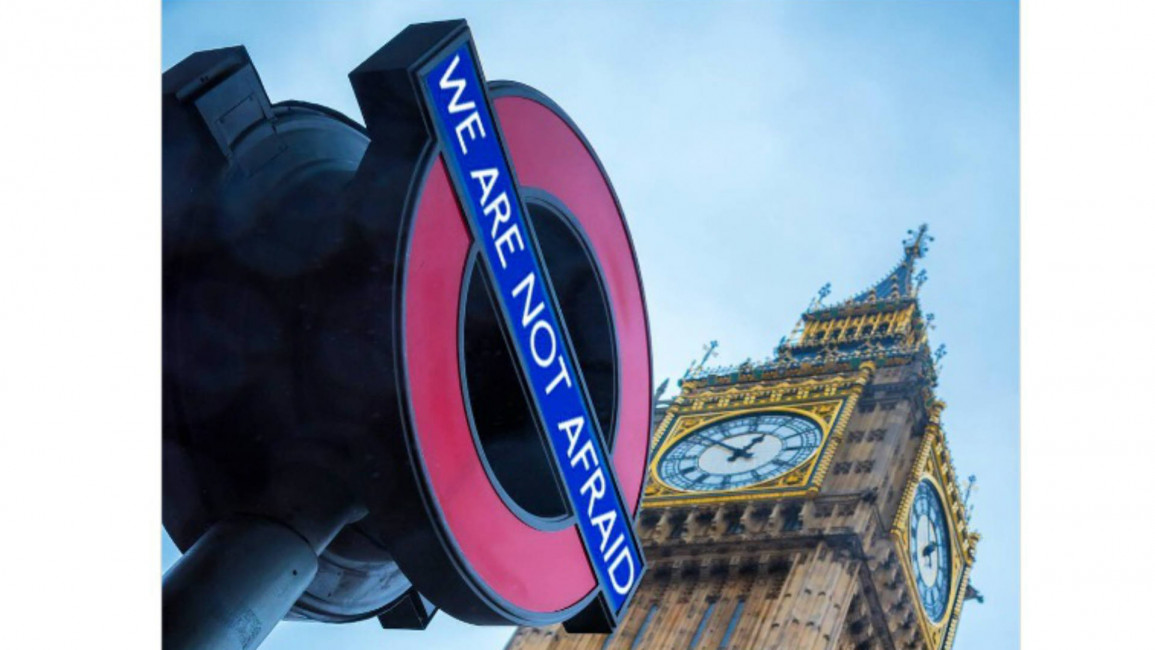
Multicultural London: Diversity trumps adversity
Watching the scenes of horror unfold in London from afar made me appreciate the city's virtues all the more.
Not just the Second World War-era "keep calm and carry on" resolve, as admirable as it is. But the fact that it was delivered in a speech by the son of an immigrant Pakistani bus driver, who just happens to be London Mayor Sadiq Khan.
It was certainly not reflected in Theresa May's speech about exclusively "British values" like "democracy, freedom and the rule of law", which made me ponder instead the many crimes of empire; colonial rape and pillage.
It rose to the surface when BBC News casually interviewed a black Somali man named Ismail who gave an account of the terrible scenes he had just witnessed, expressing shock and disgust.
London's greatest strength in the face of terror is its diversity. The same diversity, in many ways a product of those crimes of empire, that little Englanders and Brexiteers now seek to undermine.
While other world cities boast different ethnic groups, they often come with a certain inherent "separateness" or "otherness": Paris has its suburbs where black and Arab youth live a world apart from their neighbours; Canadian cities like Toronto are home to "hyphenated Canadians"; second-generation youth of Moroccan descent in Amsterdam have their "Dutchness" constantly questioned.
And while London has its fair share of racism, of course, there is still a sense of cohesion based on the cult of the local and of language and accent, that more often than not, exempts black and Asian Londoners from the dreaded "no, where are you really from?" popular racial profiling question.
Twitter Post
|
It also has the largest non-white population of any European city.
As a mixed race Canadian who has lived in London off-and-on for more than two decades, I can attest to the fact that, in Bayswater, I was never asked the dreaded "where are you really from?" profiling question - which I am routinely asked in my native Vancouver, Except when I opened my mouth and revealed my Canadian accent, and was mistaken for an American - a fate worse than death for us colonials.
Visually, I fit right in with the melting pot of Arab, Asian, Russian, Portuguese, multitudes, typical of London’s more than 270 nationalities.
But the same cannot be said of my experiences living in other UK cities, outside of Londinium, where I was routinely asked if I spoke English by strangers and eyed with suspicion as a possible "illegal immigrant" - in twee coastal towns and hallowed centres of learning alike.
For London is much more a Roman city than an English one. Always a centre of trade, its multiculturalism is not a newly minted imported migrant worker kind, it's a centuries-old tradition, with Asian and Afro-Caribbean communities present since the 18th century.
While slavery played a role in forming these communities, they also agitated against it.
The story of the Jamme Masjid Mosque on Brick Lane, built in 1741 as a Huguenot church before becoming a synagogue in 1893 and then a mosque in the last quarter of the 20th century, is instructive.
It shows how London's urban spaces are used and re-used by an ever-changing flow of global populations.
I remember interviewing "the father of Somali music" Abdulahi Qarshe in 1994, when thousands of Somalis fled conflict in their homeland. He played his oud for me and sang beautiful poetry at a makeshift Somali cultural centre in Bethnal Green.
He was living in temporary housing at the time on the Isle of Dogs, where the National Front was gaining ground. But still he sang his songs, while Somali ladies taught traditional dances, and prepared aromatic chai in the café. It was a moment that expressed the beautiful contradictions of London.
More recently, I reported on a synagogue in Finchely that had taken in a Bravanese Somali Muslim community after their centre was firebombed, reportedly by English Defence League sympathisers. The two communities shared Ramadan iftars, and stories of survival - and friendships blossomed over meals of gefilte fish and Somali sweets.
Somehow, glued to the television, watching the surreal scenes of horror at Westminster, these are the stories that I remembered. The stoicism of Londoners is legendary, but it's their solidarity in the face of adversity that makes the city truly rich.
Follow Hadani Ditmars on Twitter: @HadaniDitmars




